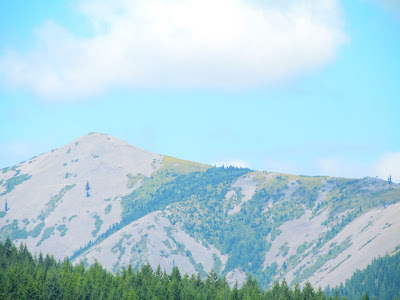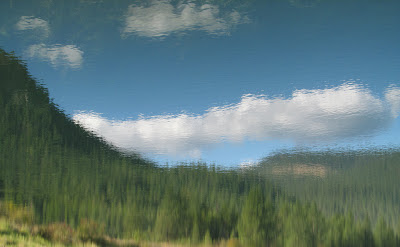Idiomatic American English has a few favorite ways of communicating, "Yes, emphatically." There's always the insert-expletive approach, as in "Hell Yeah!" or the more inscrutible "Fuckin' A!" but I've always been more interested in the Socratic(ish) approach of bouncing back a question by way of answer. Once upon a time, you could say, "Is the Pope Italian?" but in my life that became frought with "No," and now at best you can ask "Is the Pope Catholic?" or "Does the Pope hide his head in the sand and pretend that the Church has no culpability in the widespread (ouch) pattern of priestly sexual abuse?"
The other popular question, and one which does avoids esoteric knowledge of papist hierarchy while maintaining a healthy American frontier orientation, is "Does a bear poop in the woods?"
 |
| F-ing A they do! A big momma bear poo. |
The answer is clearly yes. This is no existential conundrum like that posed to dullards in the "If a tree falls and nobody is there to hear it, does it make a noise?" (Studies show that 57% of Americans actually pause to think about that one, having been raised to think that the world is centered on them.)
I've walked in bear-riddled woods for several years now, and would offer the following observations to help provide a more precise answer. While bears do poop in the woods, they are not insistent on doing so. They'll poop in meadows or clearings if the mood strikes, and even in the woods, they'll often drop a steaming pile of former berries (and current ones, see photo above), on a trail or logging road. They do not require shrub-shrouded privacy. They're bears, dammit, and they'll poop where they damn well please.
The scariest bear poop I ever saw was not the large-ish shit pictured above, but an even larger one (not pictured; if this saddens you, you are a freak or a dedicated scatologist) up near the Canadian border, where grizzlies roam. It was late summer, when the high elevations finally melt(ish), and two of us came across a mighty dropping formed almost entirely of pine cones. This is the sign of a hungry bear, which is not a creature I want to meet personally (I reeked of berries, having brought a stash and snacked on them all day).

Fortunately, most bears are a lot smaller. The foot-print above, for example, is barely bigger than my own hand-print. But small does not necessarily mean safe; this print was near the big plotz pictured previously, and so it likely belongs to a cub traveling with its mother. Based on my highly honed senses (I could see that the poop was crusty and drying and the footprint starting to collapse in on itself,...plus I had listened when another guy told me he had seen both a day or two before), I felt like I was probably not stepping between cub and protective mom, avoiding the legendary danger of such a situation.
When I have encountered bears, they have always been alone, and they have always run before I did. Mostly, they eat berries and moribund fish; they have more sense than to attack humans, unless said humans are bent on harrassing them gunlessly, or have obnoxious but tiny dogs, or have smeared themselves in liver. Legend has it that you need to act differently around a grizzly than a black bear, but I'm too lazy and fatalistic to learn which is which. It's the cougars that worry me more, to be honest, and who knows where they poop?


















